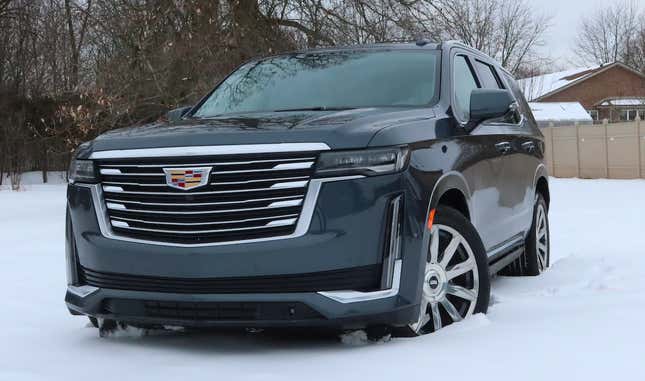
As vehicles have gotten bigger over various generations there has arisen a semantical conflict between how automakers want to categorize their various makes and models into different sizes and how consumers perceive the size of these vehicles.
As a professional car shopper I end up in almost the same conversation every week and it goes something like this.
Customer - “I am in the market for a midsize crossover like a RAV4, CR-V, or something similar.”
Then I have to be “that guy” and say something like - “Well, technically those cars aren’t midsize, the automakers call them ‘compact’ even though they don’t ‘feel’ small. Midsize crossovers are things like the Toyota Highlander, Honda Pilot, and similar.”
What makes things extra confusing is that cars like the Corolla, Civic, and such are also called “compacts” and to most buyers, a RAV4 certainly seems bigger than a Corolla.
Today on the Jalopnik Slack channel we were having a discussion as to whether or not the new CX-50 is a “midsize” as it looks very similar to the “compact” CX-5. Mazda’s press materials don’t offer much clarity and the fact that this new model is based on a stretched version of the “sub-compact” CX-30 platform makes labeling it even more puzzling.
We concluded that the naming system the automakers are using for their models is not working and we need a better solution. It’s not a complicated one we just need to look at T-shirts. I propose that vehicles be placed into two categories cars (including hatchbacks, sedans, wagons) and Crossovers/SUVs. Once within those categories, we adopt clothing-based sizes to describe them.
Cars
Extra, Extra Small - Fiat 500, Smart
Extra Small - Nissan Versa, Chevy Spark, etc…
Small - Hyundai Elantra, Toyota Corolla, Honda Civic, Audi A3, etc…
Medium - Toyota Camry, Honda Accord, BMW 3 series, Mercedes C-class, etc…
Large - Chrysler 300, BMW 5-series, Lexus ES, etc...
Extra Large - BMW 7 series, Mercedes S-Class, Genesis G90, etc…
Crossovers/SUVs
Small- Subaru Crosstrek, Mazda CX-30, Honda HR-v, BMW X1, Volvo XC40 etc…
Medium- Mazda CX-5, Toyota RAV4, Honda CR-V, BMW X3, Audi Q5, etc…
Large - Jeep Grand Cherokee, Kia Sorento, Ford Edge, Lexus RX, BMW X5, etc..
Extra Large - Toyota Highlander, Honda Pilot, Kia Telluride, Volvo XC90, Audi Q7, etc…
2XL - Chevy Tahoe, GMC Yukon, Ford Expedition, BMW X7, etc…
3XL - Chevy Suburban, Cadillac Escalade, Toyota Sequoia, etc…
I’m sure arguments can be made that some models would fit better in one category versus the other based on specific dimensions, but this system would serve consumers much better than the current compact, mid-size, full-size nomenclature that is currently used.